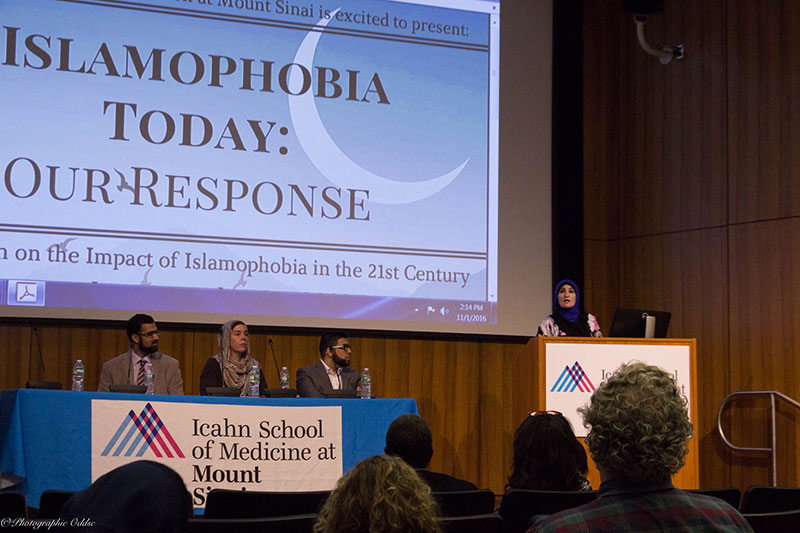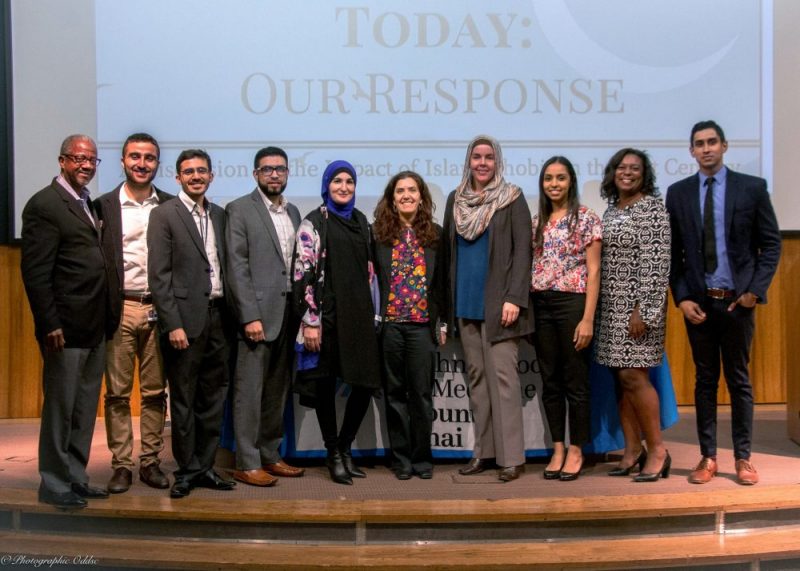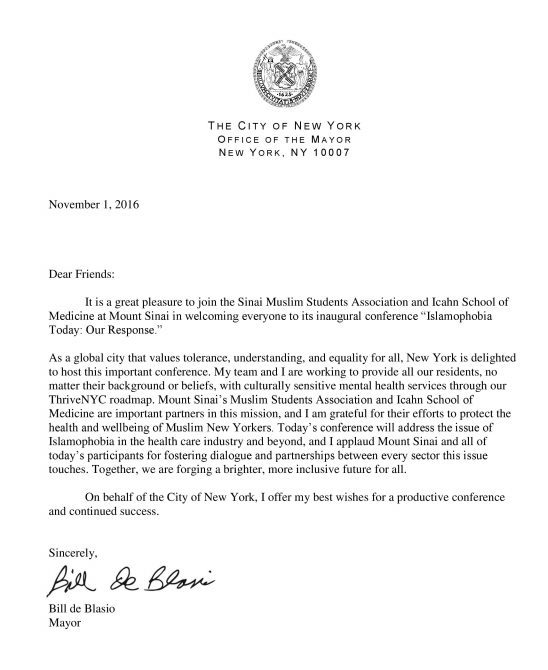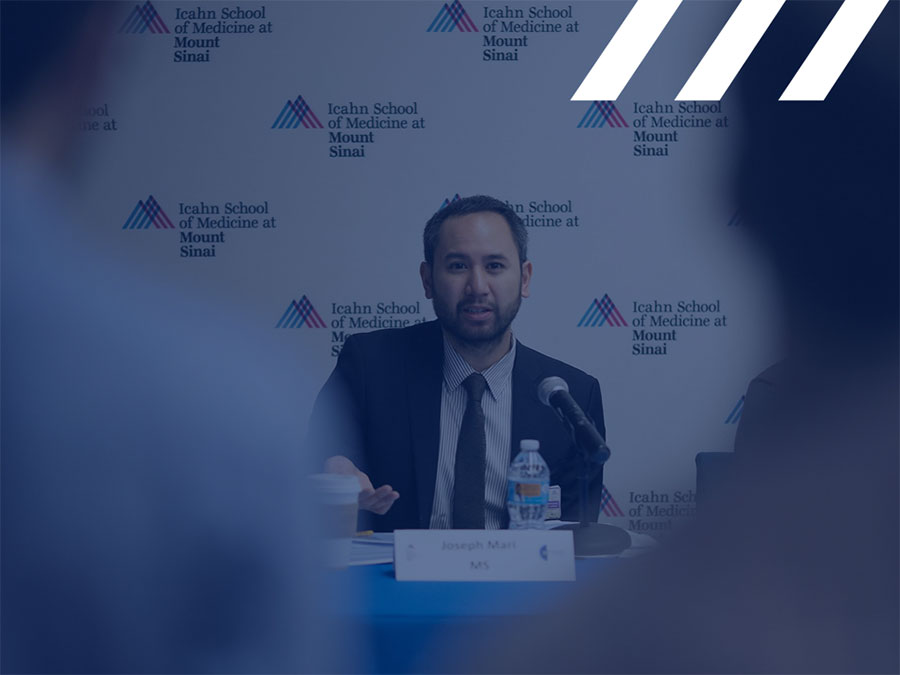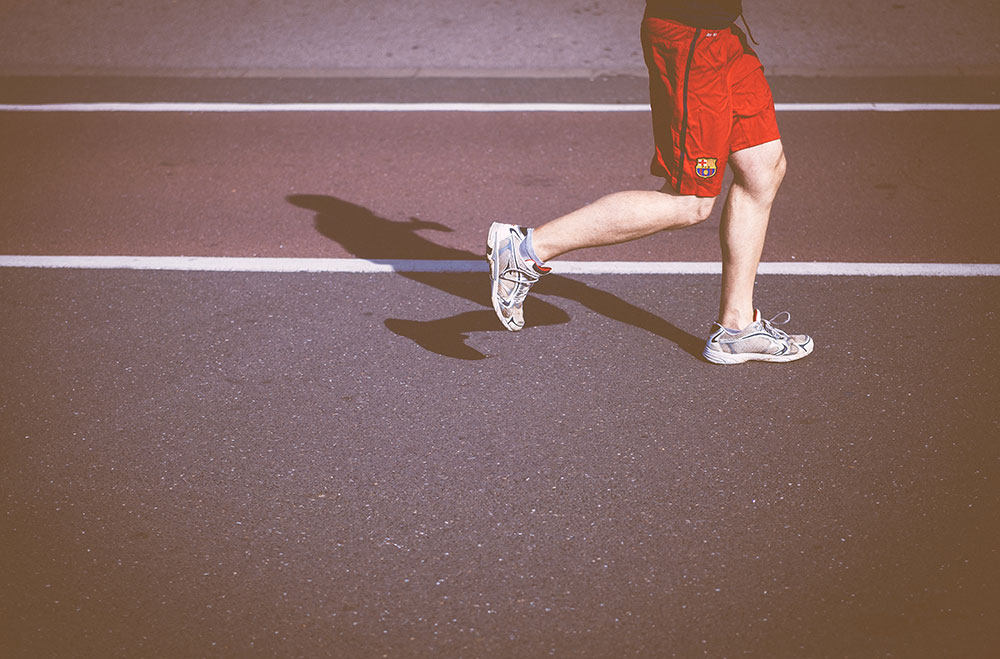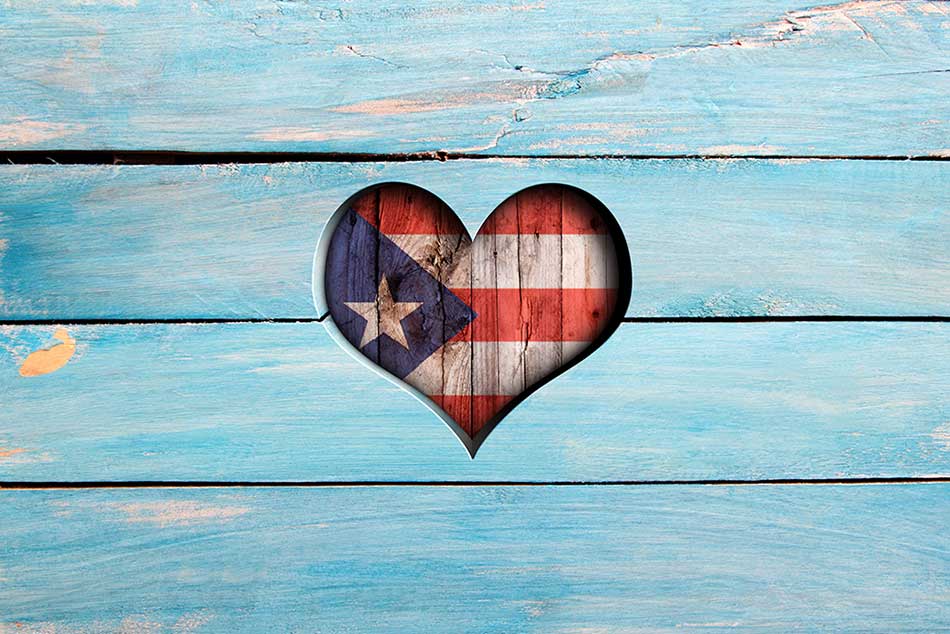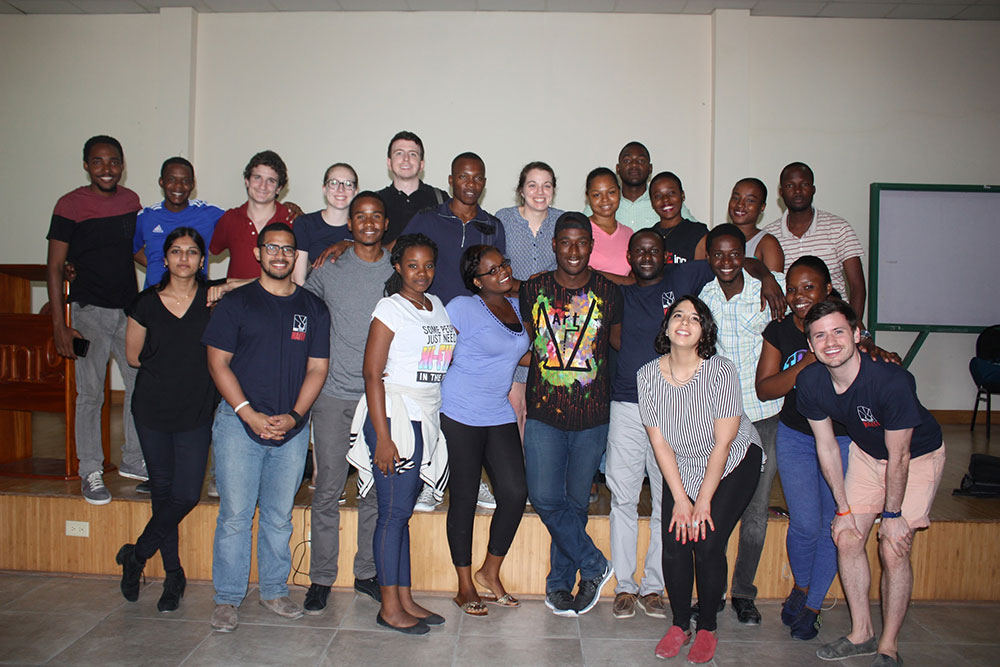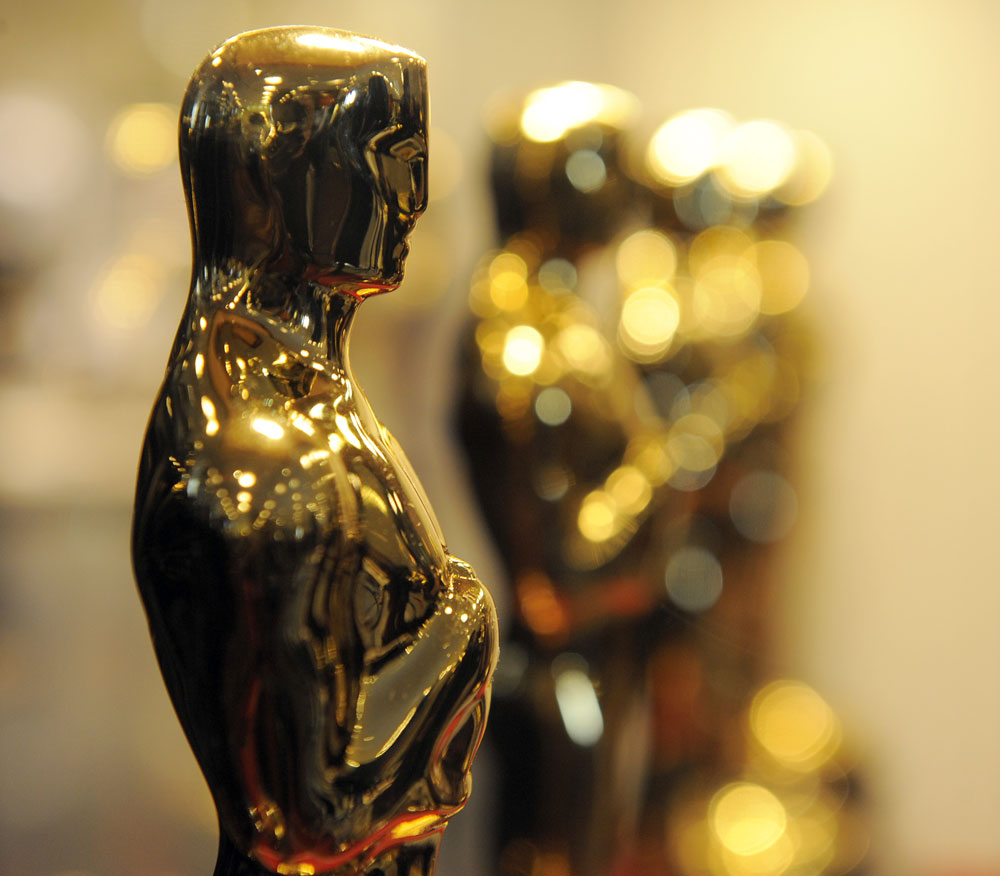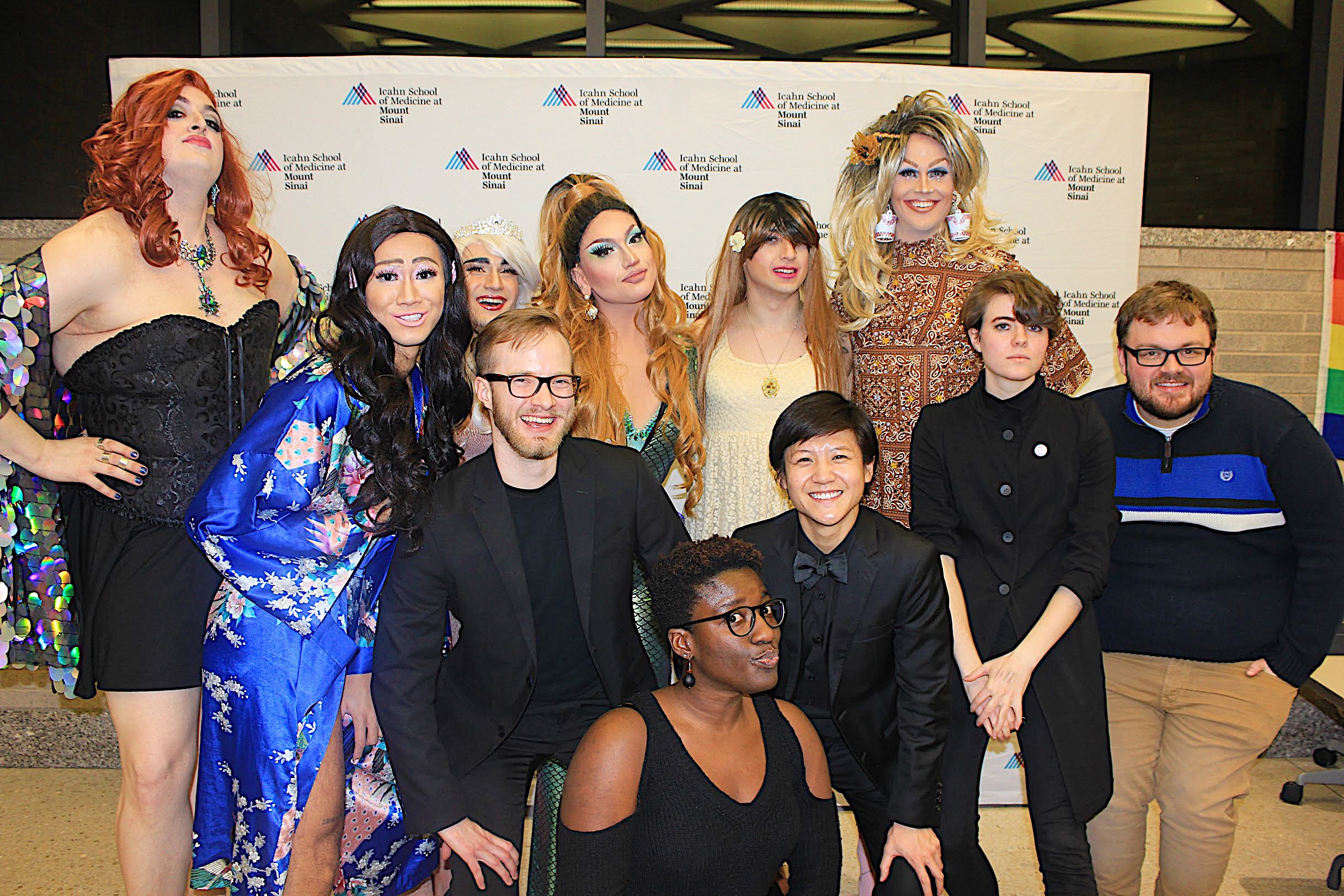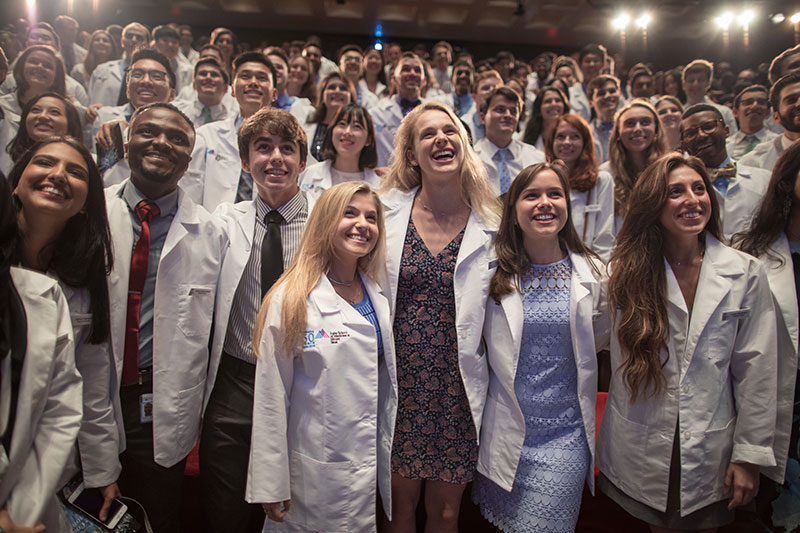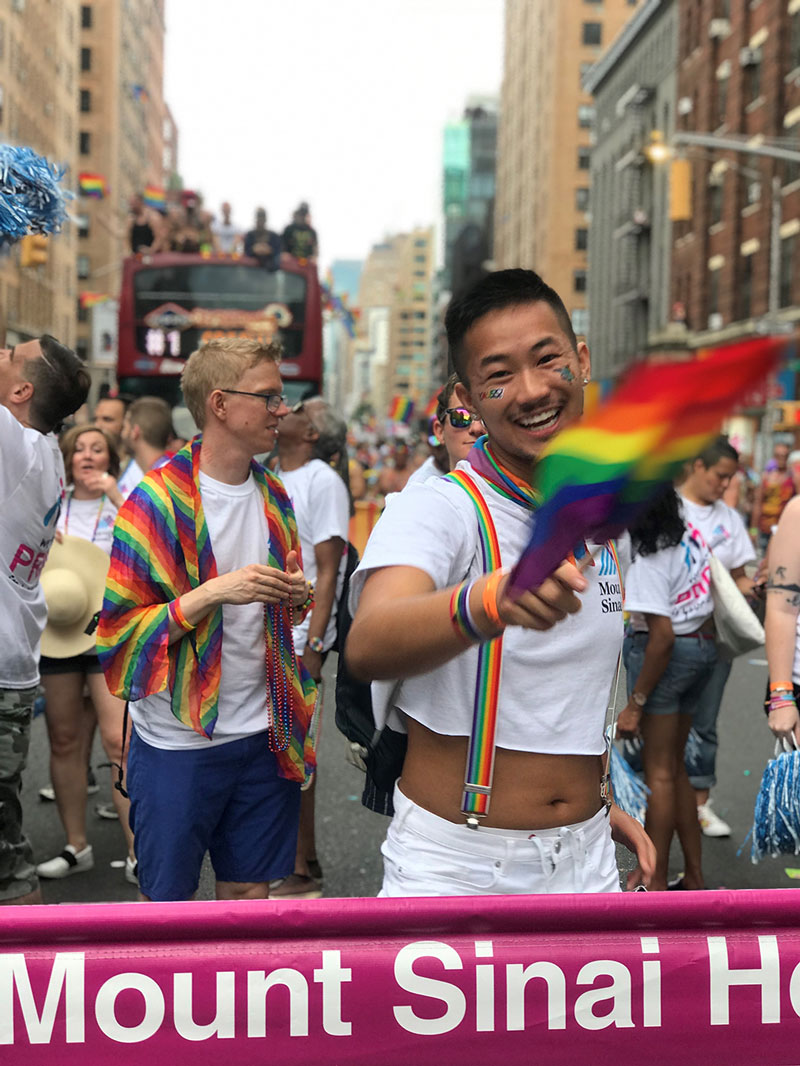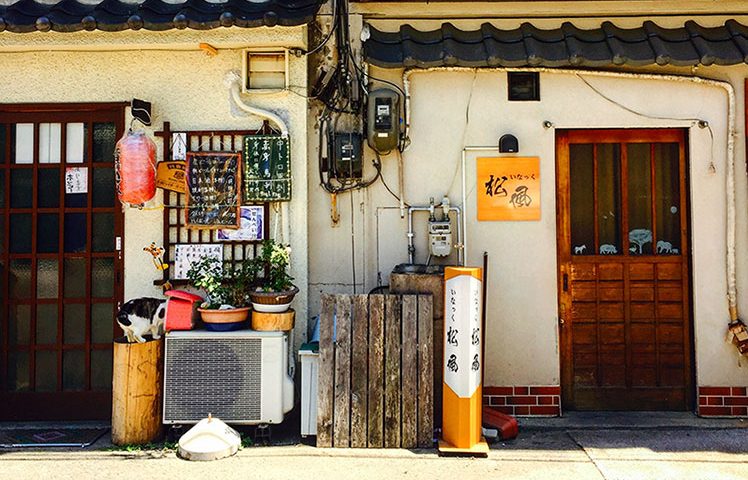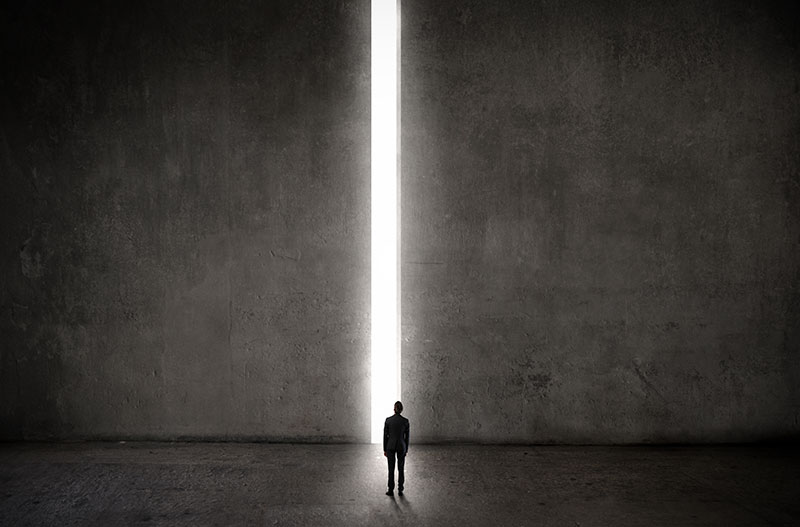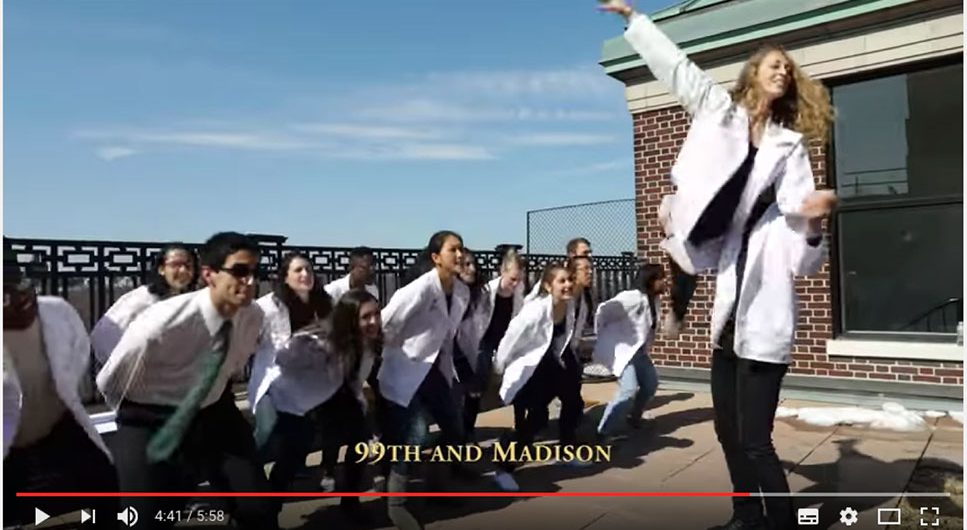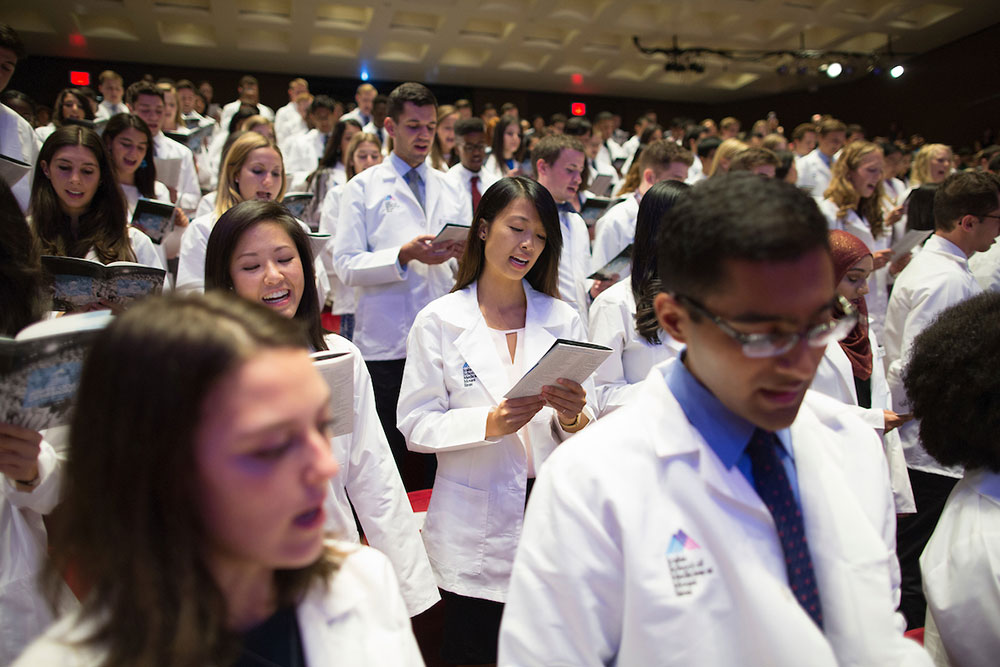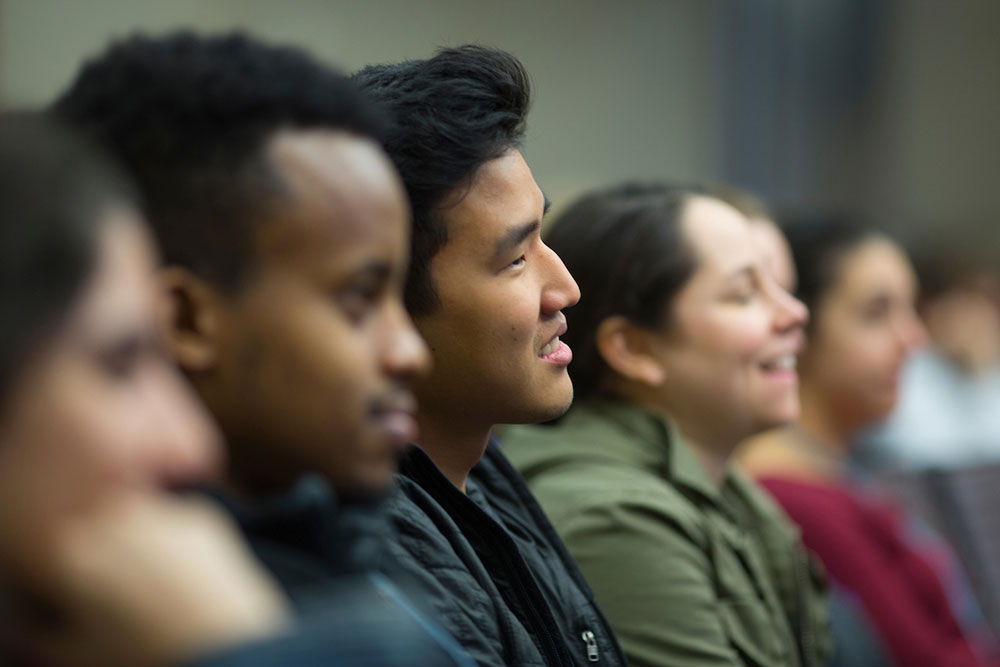On November 1, 2016, the Muslim Students Association at Mount Sinai (MSA) organized the inaugural “Islamophobia Today: Our Response”—an annual conference that aims to educate attendees about the impact of Islamophobia in today’s society and the current efforts to incite inclusion. We sat down with Syed Haider, MS II and Co-President of MSA to discuss the conference and future initiatives for the student organization.
As a leading member of MSA, how would you describe MSA’s mission?
As a Muslim student at the Icahn School of Medicine, it has been a privilege to serve as a leader for the Muslim Students Association (MSA). MSA is a student-run organization that supports and serves a diverse body of Muslim medical and graduate students, residents, and fellows. Our aim is to provide a welcoming environment for Muslim students, so we can increase the visibility of Muslims in the Mount Sinai community while promoting Islamic education and faith practices.
In the last couple of years, we are proud to say that our students are committed to service for our communities, such as setting up free health screenings in local mosques, organizing social events with other Muslim professional students, organizing monthly food drive, hosting Ramadan Iftar dinners for the greater Sinai community and raising awareness about cultural competency in medical training. The group also works closely with the Department of Medical Education and the Center of Multicultural and Community Affairs to develop strong support for residents and faculty members.
MSA recently organized the first annual conference on Islamophobia at ISMMS: “Islamophobia Today: Our Response.” Why was this event important for the group and society at large?
In today’s climate, I noticed that a Muslim news story, for some reason, seems to galvanize interest in the news media. The wave of religious intolerance worldwide has provided ammunition and a platform for some to vilify Muslims, in order to perpetuate hate, division, and uncertainty. During crucial times, Muslims and immigrants and communities of color, for instance, have faced severe backlash from political leaders, pundits and experts in the United States. This has resulted in a severe Anti-Muslim climate in the U.S., which has translated into policies and designed to stigmatize, and increase the invisibility of Muslims in our social, political, and health-care institutions. While some political leaders have backed patrolling “Muslim Neighborhoods,” others have proposed deporting Muslims from this country, while President-Elect Donald Trump proposed an all-out ban on Muslims from entering the United States.
In this environment, diversity and inclusion is an antidote to hatred and fear. As a medical student at the Icahn School of Medicine, I feel blessed to be at an institution that considers diversity a strength, not a weakness. As an immigrant Muslim and leader of a Muslim students association, I felt compelled to counter the arguments against Islam and present a very different perspective that loudly and unapologetically says, “I am a Muslim. I am a Pakistani Immigrant. I am American, and I am a Future Physician.”
Therefore our inaugural Islamophobia Conference, “Islamophobia Today: Our Response,” was a collaborative effort. The Mount Sinai Student Body, the Department of Medical Education, the Office of Diversity and the Office of Spirituality and Health came together to address increasing violence and hate crimes against Muslims or people of color profiled as “Muslims.” Our objective was to address the implicit and explicit biases that negatively affect medical care, to unpack the role of media in escalating Islamophobic discourse, and to understand the role of students and professionals in confronting Islamophobia in our society. We used Islamophobia as a case study to gain understanding about racism perpetuated with Orientalist and neo-colonial stereotypes in the United States.
Jerusha Lamptey, PhD stated: “Phobia in Islamophobia implies fear, but it’s really racism and bias towards Muslims.” How did this set the tone for the conference discussion?
It is true. Dr. Lamptey raised an important point regarding the intersectionality of race and religious prejudice. Last year, we as a nation witnessed horrific videos of unarmed black men being shot and killed by police officers. In early 2016, three young black men, Mohamedtaha Omar, 23, Adam K. Mekki, 20, and Muhannad A. Tairab, 17, were shot—execution style—at a local hangout spot in Indiana. Omar and Tairab were Muslim. Their deaths caused warning signs in the Black Muslim American community that often feels unsafe due to a hostile political climate. The media, the general public, and Muslim communities often neglect the violence faced by people at the intersection of racism and Islamophobia in the United States. It is worth mentioning that 23 percent of Muslim Americans, overall, identify as black.
Khaled Beydoun, a prominent law professor and a social justice activist commented, “The systemic police violence that guns down Black men and women, most recently Alton Sterling and Philando Castile, is built upon the very structures and carried forward by the very personnel that monitor, infiltrate and police Muslim-American spaces and communities. Structural Islamophobia and structural racism not only emanate from the same sources, but are executed by the same agencies. Anti-terror programs that disproportionately target poor and working class, Muslim communities are – today – carried forward by local police departments, and emulate the community policing strategies that disproportionately target poor and working class, Black and Brown communities.”
Organizers, supporters, and speakers of the “Islamophobia Today: Our Response” symposium (from left to right): Gary Butts, MD; Benjamin Boodaie, MS II; Syed Haider, MS II; Sheikh Faiyaz Jaffer; Linda Sarsour; Meira Neggaz, MPH; Jerusha Lamptey, PhD; Aiya Aboubakr, MS II; Michelle Sainte; and Saad Kamal, MS II.
Secondly, bias and racism transcend U.S. boundaries. It is imperative to demystify the myth that violence and religious extremism only affects the Non-Muslims or people in the West. To be precise, in the last five years, 95 percent of the victims of extremist attacks around the world have been Muslims. The attacks in the cities of Dhaka, Istanbul, Baghdad, Jeddah, and Medina show how Muslim communities are mostly affected by extremism and violence.
Third, the grief of this suffering is disenfranchised by the political rhetoric and actions by political leaders in the West, who have alienated the Muslim populations, particularly Muslims born in the West. After a series of extremist attacks, several hate crimes were reported. American Muslim citizens in New York, Texas, and Florida were brutally assaulted. As Omar Shareef—a Muslim medical student in New York—says, “It feels suffocating being bombarded by raging vitriolic Islamophobes on one end, and on the other end suffering such vicious blows from utterly depraved sociopaths in the name of my faith.”
These episodes are a reminder that hatred, racism, xenophobia and Islamophobia pervade our society, and they restrain us from challenging the status quo. All these subjects were educational for the audience at the symposium and gave them the opportunity to support our cause as we go forward.
Many are aware of Islamophobia’s presence in society. What’s its intersectionality within medicine and academia?
The post 9/11 climate has certainly created difficulties for Muslim students, residents, and attending physicians in medicine and academia across the country. Prior to September 11, 2001, studies have demonstrated that it was easier for Muslim students to travel to the United States. However, things have changed drastically in the last 15 years. As a CUNY undergraduate student, I was informed multiple times that NYPD monitored Muslim college and graduate students at multiple institutions across New York City. While most of these programs have been dismantled, and are being phased out, they have created mistrust between the governmental agencies and the communities. Due to Islamophobia and pressure of being accepted in the community, American Muslim students are being forced to deal with the negative images about terrorism and radical Islam portrayed in the media.
In medicine, many medical and nursing schools and health care facilities in the United States are beginning to improve the cultural competency training and implicit bias modules to address the religious and non-religious needs. However, due to the paucity of health literature and research studies involving Muslim patients, there are many gaps in knowledge among health providers, faculty, and trainees. Therefore, it is imperative to promote initiatives that encourages greater health-disparities research among various Muslim communities across the United States. Additionally, with increasing hate crimes against Muslims or people of color perceived as “Muslim,” I believe health care professionals must take a proactive role in protecting the children and adults experiencing physical and mental health care trauma.
The support level MSA received for this conference was outstanding, even reaching governmental acknowledgement, correct?
First, I was extremely grateful to Mount Sinai administrators and leaders for giving us, the medical students, a platform to express our concerns in an academic and intellectual fashion. In a political climate that has normalized racism and bigotry, the Icahn School of Medicine at Mount Sinai made it extremely clear that they do not tolerate behavior that is discriminatory and reassured the greater student body that they would maintain a learning environment that is nurturing and supportive to all.
Second, we collaborated with 17 organizations at Mount Sinai that supported our mission and gave us the courage to pursue our goals.
Mayor Bill de Blasio shares his support of “Islamophobia Today: Our Response” conference and its societal impact.
Finally, we were grateful that we received acknowledgement from the New York City Mayor’s Office as well. The Mayor applauded Mount Sinai and all of the conference organizers and participants for “fostering dialogue and partnerships between every sector this issue touches.” He said, “Together, we are forging a brighter, more inclusive future for all.” It was a great milestone for the planning committee to have their work being recognized by the Mayor and his office.
What are a few future initiatives for MSA?
MSA hopes to work and guide society toward a paradigm shift that will embed diversity and inclusivity in our governing institutions, and have greater acceptance across all the population. We are pleased to announce that we are working toward hosting our second Islamophobia Conference at Mount Sinai in 2017.
Additionally, MSA is collaborating with other medical schools to advance advocacy efforts to create framework and support for even more Muslim medical students. Personally, I have taken this stand because I see medicine as a field that is responsible for contributing to the healing of socially constructed ideas and help American-Muslims and Muslim immigrants in their medical journey.
In the coming year, we will continue to have local events at the Icahn School of Medicine that address the cultural competency training for medical students and other health care professionals.
What was the biggest take away from the conference?
The conference empowered members to examine their own biases and asked them to challenge bigotry in meaningful and constructive ways. While there is a powerful lobbying effort by an industry and group of people that spread Anti-Muslim sentiment, we must build coalition for a stronger and pluralistic America, must become informed and must vote for our future. Additionally, the conference speakers encouraged all attendees to collaborate with one another to address the increase in hate crimes against all minority groups. As one of the speakers eloquently said, “In unity is our strength.”
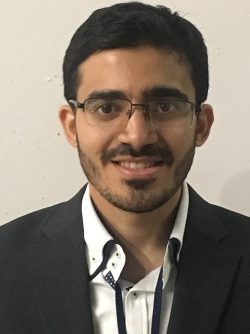 Syed F. Haider, a native Pakistani, is a second-year medical student at the Icahn School of Medicine. He completed his B.S. from CUNY City College of New York. He is currently GLG-Mount Sinai Global Health Scholar. He is interested in global health, head trauma, mental health, and sports medicine, and hopes to research and pursue a career in these fields.
Syed F. Haider, a native Pakistani, is a second-year medical student at the Icahn School of Medicine. He completed his B.S. from CUNY City College of New York. He is currently GLG-Mount Sinai Global Health Scholar. He is interested in global health, head trauma, mental health, and sports medicine, and hopes to research and pursue a career in these fields.
Syed has been an active member of the Mount Sinai student body. He is co-President of the Mount Sinai Muslim Student Association that aims to address Anti-Muslim bigotry and combat Islamophobia in the health care system. He is also the co-founder of the Human Rights Student Leadership Group and the South Asian Medical Student Association. Syed is additionally a Class Representative for Class of 2019 and a Board of Trustees Student Representative. He is a passionate Chelsea Football Club supporter, soccer fan, and worked as a soccer trainer for a year.

